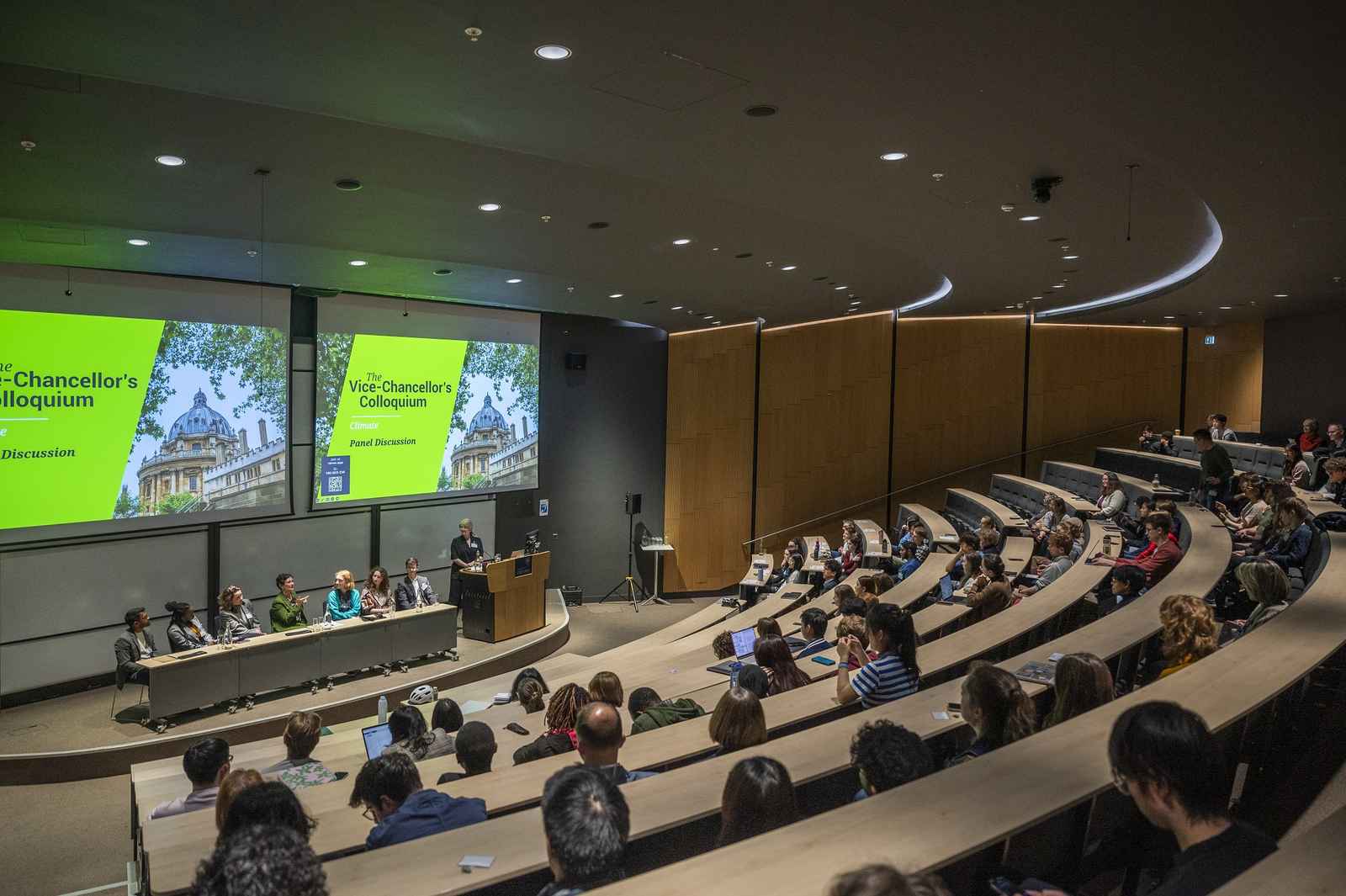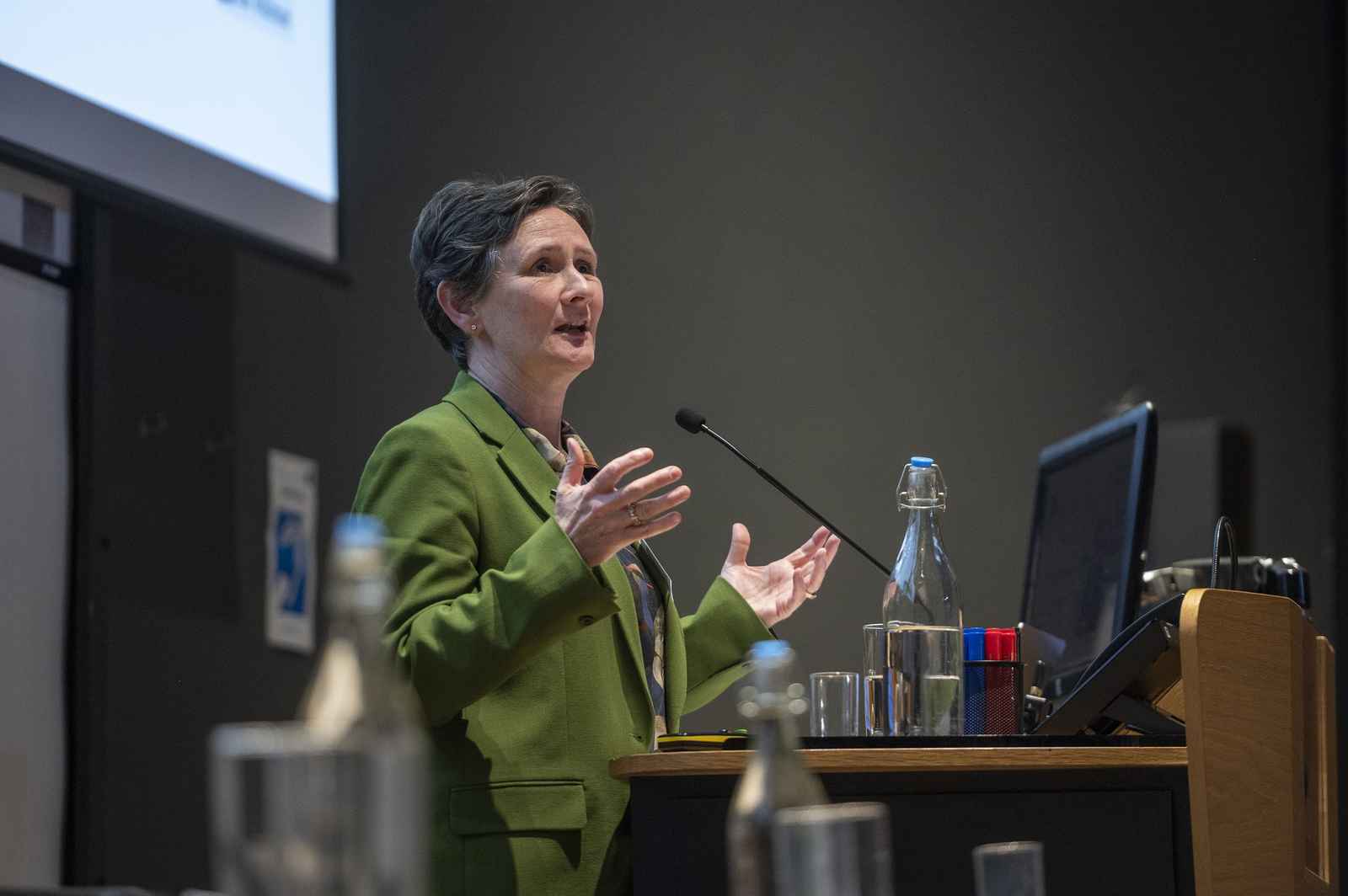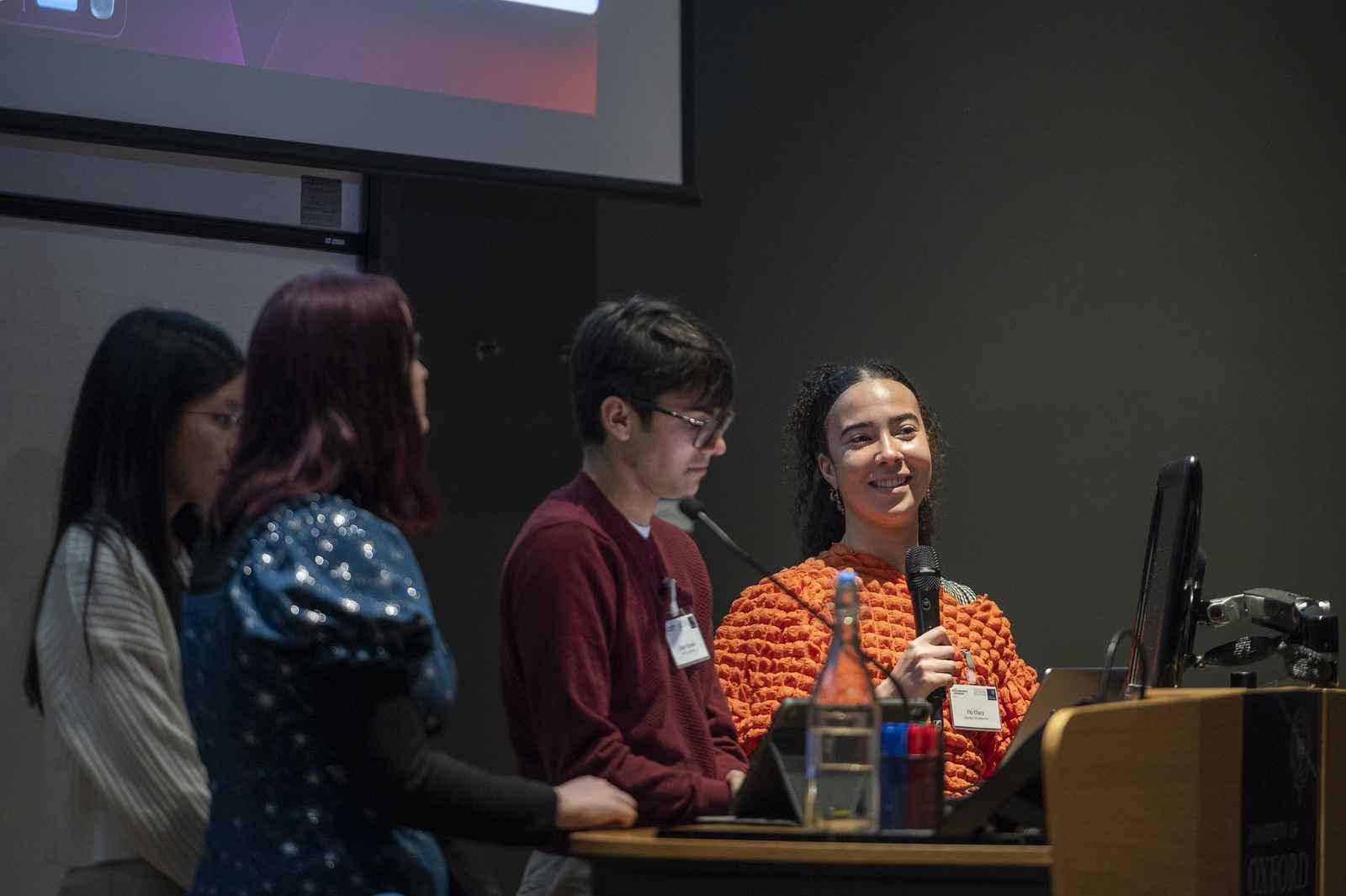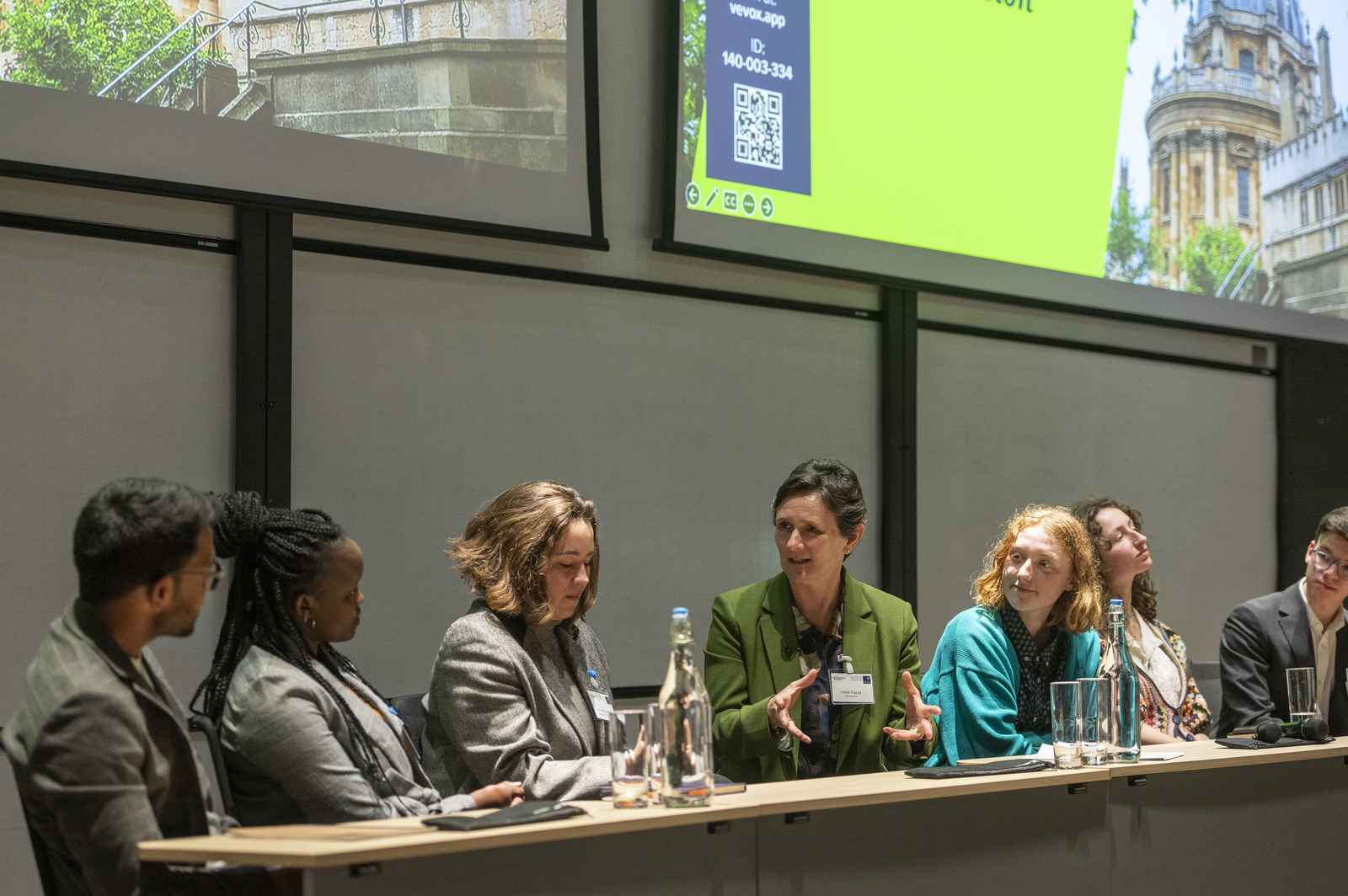The Vice-Chancellor's Colloquium
The Vice-Chancellor’s Colloquium
Hilary 2025 theme: Climate change
The Vice-Chancellor's Colloquium is a unique, interdisciplinary, extra-curricular offering for all degree and award-bearing undergraduates at the University of Oxford.
With the need for broad, creative thinking to respond to the challenges of our time, students have an exciting opportunity to work outside of their subject of study to gain additional knowledge and skills.
This new programme brings together leading Oxford academics and interdisciplinary student teams to respond to big questions about the causes, impacts and solutions to the global climate crisis through lectures, group discussions and interdisciplinary projects.
2025 Celebration Event
The annual celebration of the Vice-Chancellor's Colloquium on Climate took place on Monday 9 June, featuring the final group presentations and an experimental 'antidebate' on climate education. Three teams, made of up to five undergraduate students from different disciplines and colleges, were shortlisted for their proposals:
- OxGreen, from Somerville College
- RePlateOx, from Exeter College
- The Oxford Swap & Shop, from Wycliffe Hall
Read more about the three final projects of the 2025 Colloquium.
Key areas of skills development
- Numeracy and data analysis: In our age of information, how can we make sense of the world and effectively use the insights of data analysis to guide policy, our own understanding, and our ability to engage in critical reflection?
- Critical thinking, curiosity and imagination: Thinking deeply about social and cultural systems, how do we ask questions about the harms and benefits of individual and collective actions, and develop the capacity to offer solutions?
- Communicating to different audiences: When faced with complex and potentially divisive issues, how can we communicate effectively to key stakeholders from the classroom to the boardroom?
What is included?
- Keynote lectures and talks: The cornerstone of the Colloquium will be the delivery of keynote lectures by senior Oxford academics from across the academic divisions. Each session will bring together two professors from different disciplines to respond to a big question related to the annual theme and explore how their academic disciplines and research methodologies provide insights.
- Interdisciplinary group discussions/activities: Oxford Colleges will host small group discussions and activities in the alternating weeks from the keynotes. These sessions will be guided by a cohort of doctoral teaching assistants who have been trained by the organisers and respond to the lectures and deliver skill-building content.
- Interdisciplinary projects: Participants will be formed into small interdisciplinary groups to identify a local problem related to climate change and propose an interdisciplinary solution. These projects will synthesise the key themes of the lectures and skill-building content, harnessing interdisciplinary perspectives to result in new insights for local and global engagement.
- Panel and celebration: The Colloquium concludes with a celebratory event, with a small group of undergraduate and postgraduate students joining the Vice-Chancellor in a dynamic panel discussion. The group project finalists will present their projects, with the winning group provided with funding to continue their project.
- Summer micro-internships: A summer micro-internship programme will be offered through which selected participants will have the opportunity to continue the work outlined in their pitches/posters, especially in terms of supporting the University’s goals for local and global engagement and environmental sustainability.
Applications for the next Colloquium will open in Hilary 2026.







